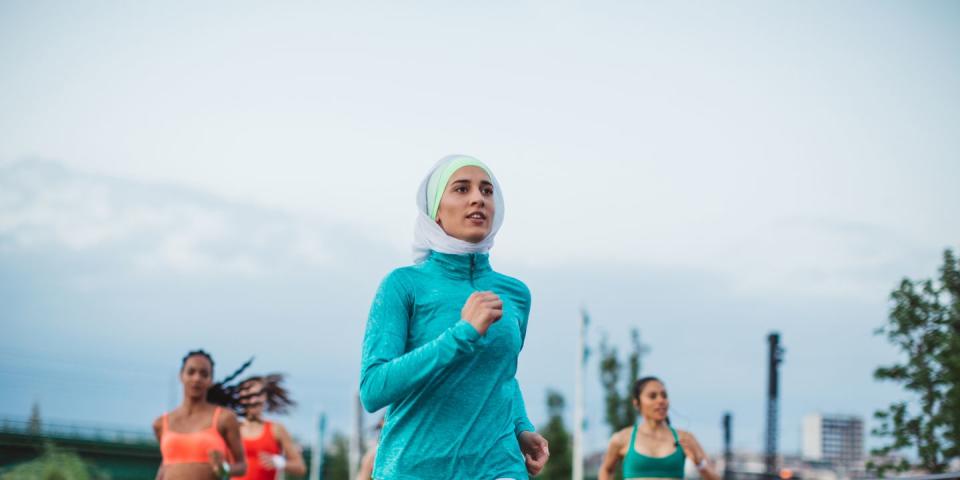Quarter of Muslims train less during Ramadan, according to new survey

A quarter of young Muslims train less during Ramadan, according to a new survey.
In a survey of 18-35-year-old Muslims, for sport and fitness retailer Sports Direct, over 80% of respondents said they were concerned about exercising safely during the holy month, while 29% said they felt there was not enough information available to them about how to train safely.
When asked why that was the case, those surveyed pointed to physical reasons: nearly half said it was because they felt hungry or thirsty during or after training, while more than 30% cited a desire to preserve energy. 35% said they trained less because it was too hot to exercise without water, as is required during Ramadan.
However nearly one in five men said fear of judgement was also behind their reduction in training during Ramadan, compared to 15% of women.
During Ramadan, Muslims do not eat or drink – including water – during the hours of daylight. Those observing the holy month typically take an early morning meal (suhoor or sehri) before dawn and break their fast after sunset with an evening meal (iftar or fitoor).
In response to the findings, Sports Direct has launched Fast & Slow, a campaign to provide Muslim athletes with information on how to adapt their fitness routines when fasting. The campaign is being supported by marathon runner Haroon Mota and ASRA, a community for Muslim women in sport. In a video posted to his Instagram, Mota says:
'It’s important to be sensible and really listen to your body. Do what is right for you. Avoid high intensity training – I’ll be training just before sunset so that I can break my fast instantly after my run.
'I’ll be prioritising hydration and trying to drink at least 3-4 litres of water throughout the night, and eating plenty of carbs to ensure my energy levels are replenished.'
Like this article? Sign up to our newsletter to get more articles like this delivered straight to your inbox.
You Might Also Like

 Yahoo Finance
Yahoo Finance 